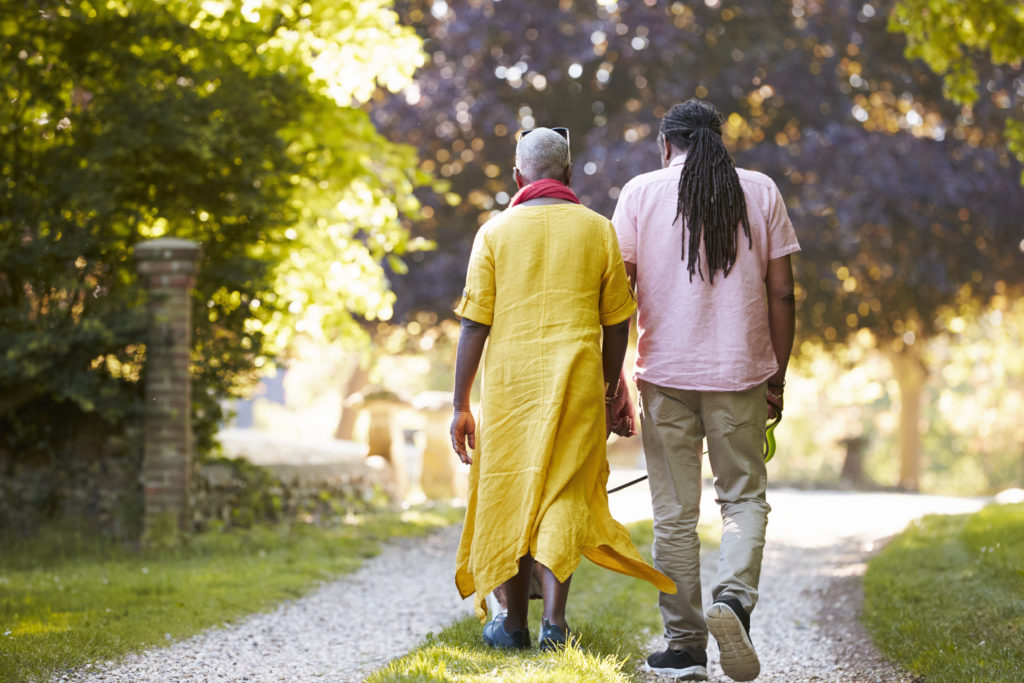As your parent or loved one gets older, you may wonder if they are safe living at home alone. However, most well-meaning family members assume that if there is not a diagnosis of dementia, their senior loved one is safe and sound at home without support. Unfortunately, seniors can live in dangerous conditions, or practice unsafe habits, as they grow older while trying to maintain independence at home.
Seniors living without dementia, or living with the early stages of the disease that are easy to cover up when a family member visits, are still at significant risk for falling, infections due to poor hygiene habits, depression or anxiety, and poor nutrition. Here are a few signs to take seriously when you see them during your next visit or phone call check-in.
Mom wears the same clothes every time I see her.
Seniors can develop poor hygiene habits for a variety of reasons, including poor mobility, pain, or decreased endurance. Sometimes the thought of getting ready for a shower and getting back out again can seem like an insurmountable task, which can lead to skipping showers and even skipping getting undressed for bed (and dressed again in the morning).
Poor hygiene not only has a direct impact on self-esteem, but it can also lead to skin conditions and other potential infections.
Dad has lost weight lately.
Healthy nutrition is crucial for healthy aging, however, seniors living at home can struggle with getting a healthy meal on the table three times per day. Even adults who loved to cook even just a few years ago can find planning and preparing meals for one more of a hassle. Without proper nutritional support, most seniors can lose weight rapidly and become dehydrated.
Dehydration can lead to infections, falls, and even acute confusion.
Mom tells me she is lonely.

Depression is not a normal part of aging. However, many seniors can live with depression or anxiety for years without being properly diagnosed and treated. If your loved one is expressing feeling lonely, sad, worried, or has had thoughts of self-harm, it is a sign you should take seriously.
Socialization and strong support networks can decrease depression and perceived loneliness in seniors. However, isolation can lead to negative health consequences for most older adults.
Dad is sleeping in his recliner downstairs instead of his bedroom upstairs.
One of the most common comments we receive here at CaringGivers is about family members wondering why their loved one isn’t sleeping in their bed anymore. This is typically a warning sign that something else is going on. For example, seniors can choose to sleep in the recliner because they are too weak to retire upstairs, or they may be taking pain medications that are making them too drowsy before they make it to the bedroom.
It could be a memory issue, an endurance issue, or a poor time management issue. In any case, sleeping somewhere other than the bedroom can indicate other concerning factors at play.
Mom isn’t taking her medications.
Medication mismanagement is very dangerous and unfortunately, quite common in seniors over the age of 60. Noticing that your older loved one is skipping doses or running out of medication too quickly could indicate memory issues, fine motor decline, or other concerns.
No matter the reason, medication mistakes can lead to acute confusion, falls, hospital stays, and even death.
Let CaringGivers Help
The team at CaringGivers has decades of experience working with seniors of all abilities and challenges. We can develop a plan to support your aging loved one and keep them healthy at home. Our caregivers are compassionate, kind, creative, and extremely skilled at their jobs. With a regular friendly visit, some cueing and encouragement, your loved one can benefit from feeling better than they have in years.
Let us walk beside your family and support your loved one so they can live at home independently for longer. Most seniors living at home need a little extra support, even without a diagnosis of dementia.
Call us today to talk more about your loved one so that we can begin a customized plan designed for you.

